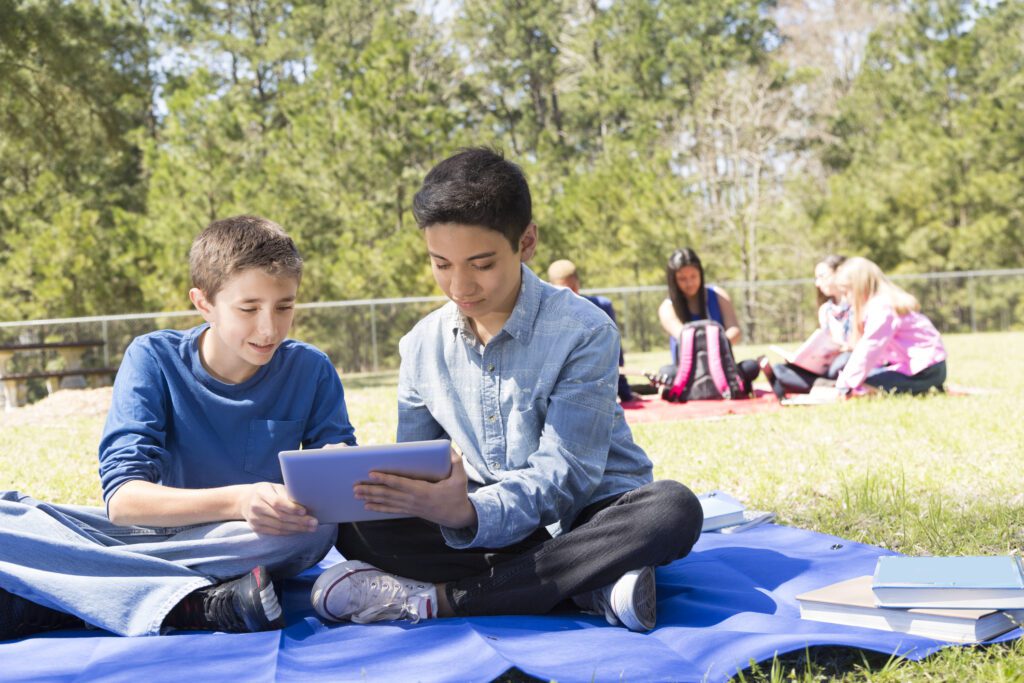Many schools assign homework for students to complete before they return to class in September. This results in both parents and students having to learn how to finish summer reading and homework while balancing fun summer activities.
This summer, school is out and homework is in.
If your child has been putting off a pile of summer homework and reading assignments—he or she is not alone.
Reading books and writing assignments during the summer may not sound appealing to many students—or parents. Students can also get UK homework help if they need the some help with completing their assignment! But summer assignments are a great way to combat the effects of Summer Learning Loss and keep your child’s brain active over the break.
The Facts On Summer Learning Loss
Six weeks in the fall are spent re-learning old material
Two months of reading skills are lost over the summer
One month of overall learning is lost after summer vacation
With the right mindset, goals, and structure, you’ll have no problem finishing summer reading and homework between BBQ’s, ball games, and beach trips.
Follow these 14 steps to learn how to complete summer homework—without sacrificing summer fun.
14 Tips For Finishing Your Summer Homework Assignments
Make A Game Plan
Tip 1: Take A (Quick) Break
It’s hard to go from a full year of schoolwork to tackling summer homework right off the bat. Let your child take a week off of homework at the start of the summer. This will give his or her brain a chance to relax and reset, and enjoy taking part in fun summer activities like sports.
Tip 2: Review Project Requirements
Don’t have your child dive head-first into his or her homework assignments. Review the expectations of each project with your child and discuss how much time he or she will need to complete them.
It would be a shame to waste time redoing a project because your child didn’t understand it initially. Reviewing all requirements is an important first step to starting off on the right foot.
Tip 3: Break Down Each Project Into A Series of Goals
Think about which assignments will take the longest and what your child will need to complete them during the summer. Break these larger assignments into a series of goals that need to be met to complete the project.
Examples of goals include “read 2 chapters per week” or “write essay introduction by July 15th”.
Set Aside The Right Amount Of Time
Tip 4: Plan A Weekly Summer Homework Schedule
This should be similar to a school year homework schedule, but altered for the summer. The ideal amount of time to spend doing summer homework per week is 2-3 hours, so figure out where that time fits into your child’s average summer week.
Tip 5: Make A List Of Supplies & Resources
Your summer adventures could take you and your child to a wide variety of places. Make sure you both know what to bring with you so your child can tackle homework when not at home.
Examples of supplies include:
- Notebooks
- Pens
- Laptop
- Textbooks or Assigned Novels
Tip 6: Choose Assignment Topics Based On Interest, Not Length
Sometimes students are given options when it comes to topics to research or books to read over the summer. Encourage your child to make these decisions based on the topics that interests him or her most—not which is “easiest”. This will result in your child enjoying his or her work, and allow him to benefit more from it.
Help Your Child Do Work On-The-Go
Tip 7: Adjust Your Homework Schedule For Trips & Vacations
Exploring new places is an amazing learning experience, so don’t feel like you should sacrifice them for more homework time. Instead, plan your child’s homework schedule around these day trips and vacations.
If you know your child won’t have time to complete work while you’re away on a longer trip, make up those hours in the weeks before and after your trip.
Tip 8: Tackle The Work Your Child Can Do On-The-Go
While writing an essay is a project to save for when you return home, there are assignments that your child can tackle from just about anywhere. Options for homework to do on vacation include projects that are doable in small chunks—like reading a book or completing a math worksheet.
Tip 9: Bring Your Child’s Supplies With You
Remember that supplies list you created? Make sure you pack that backpack and bring it with you on your trip! It’d be a waste to find a spare hour to finish that math assignment, only to realize your child left his or her calculator at home.
Tip 10: Capitalize On The Quiet Times
Even the busiest trips include some quiet time. If you’re early for a dinner reservation, have your child complete a chapter of reading while you wait. Or, encourage your child to wake up 20 minutes early to answer some math questions without disruption.
Build A Support Team For Your Child
Tip 11: Schedule A Weekly Workdate For Your Child & A Friend
There’s no reason your child has to work through summer homework alone. Make a weekly work date with a friend where they can tackle summer assignments together. If that friend is in the same class as your child, they can even discuss questions and challenges together.
Build A Support Team For Your Child
Tip 12: Review Your Child’s Progress Every Week
Each week, speak with your child about the work he or she accomplished, and what is planned for the week ahead. If you know your child will be busy soon, work together to reorganize his or her homework schedule.
Tip 13: Touch Base With a Tutor (Or Enrol In Summer Learning Program)
A new set of eyes can make all the difference in making sure your child gets his or her summer assignments done efficiently and effectively. Your child’s tutor will be able to give constructive feedback and turn this feedback into goals for the upcoming school year.
If you want an extra head start for your child this school year, enroll him or her in a Summer Learning tutoring program to get started on the right track.
And Most Importantly…
Tip 14: Reward Your Child With Summer Fun
While schoolwork is important during the summer, it doesn’t have to come at the sacrifice of having fun. Whenever your child completes a new project or achieves a goal, reward him or her with a treat or fun summer activity.
Work Hard—And Play Hard—This Summer
Summer might seem like it will last forever, but the school year will be here before you know it. Don’t let your child fall into the habit of procrastination—instead, make a plan together and stick to it.
If you follow these tips, your child will finish summer homework and summer reading in no time…and develop great learning and study habits that will already be in place for next year!







